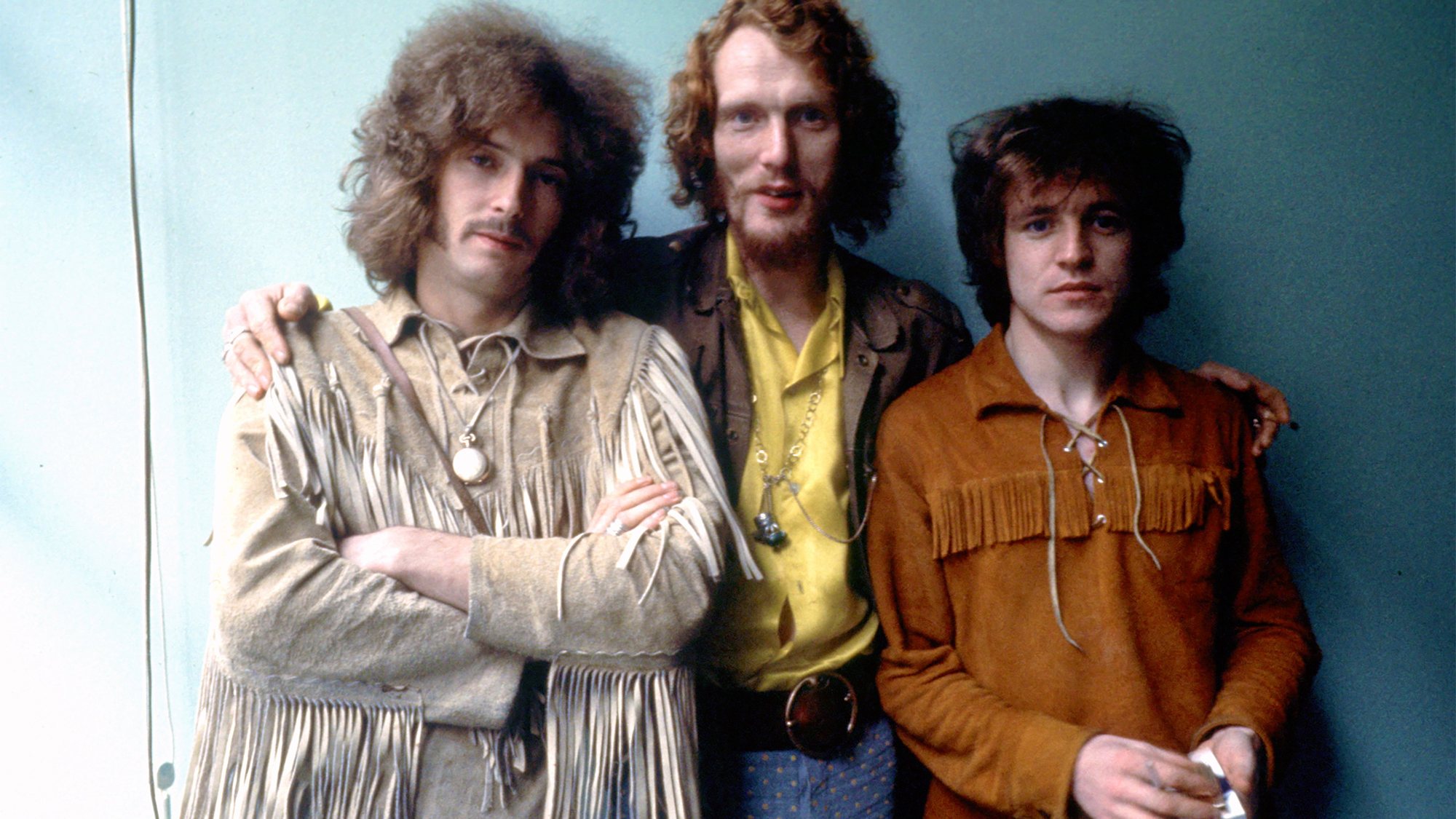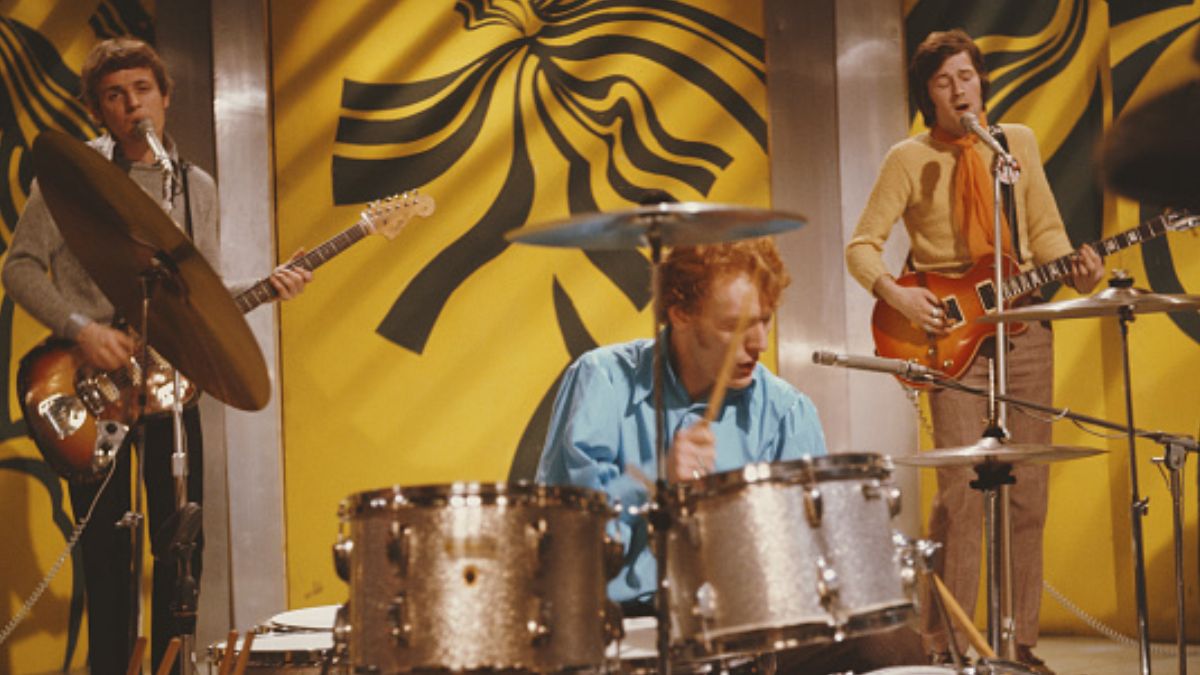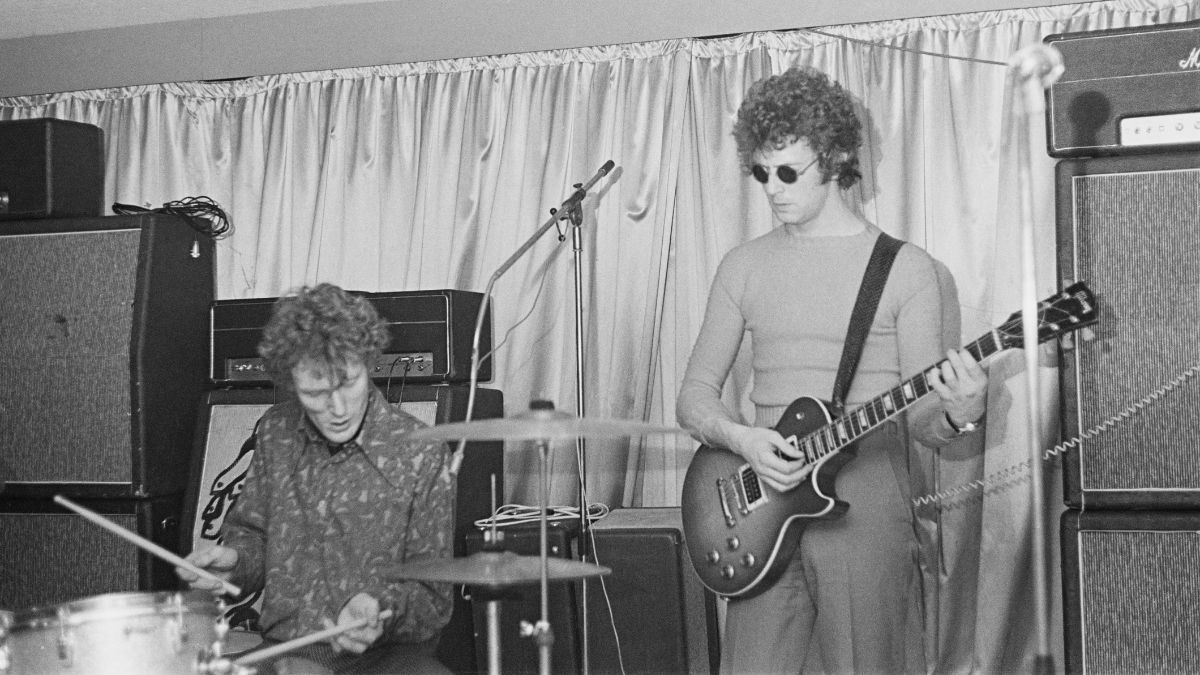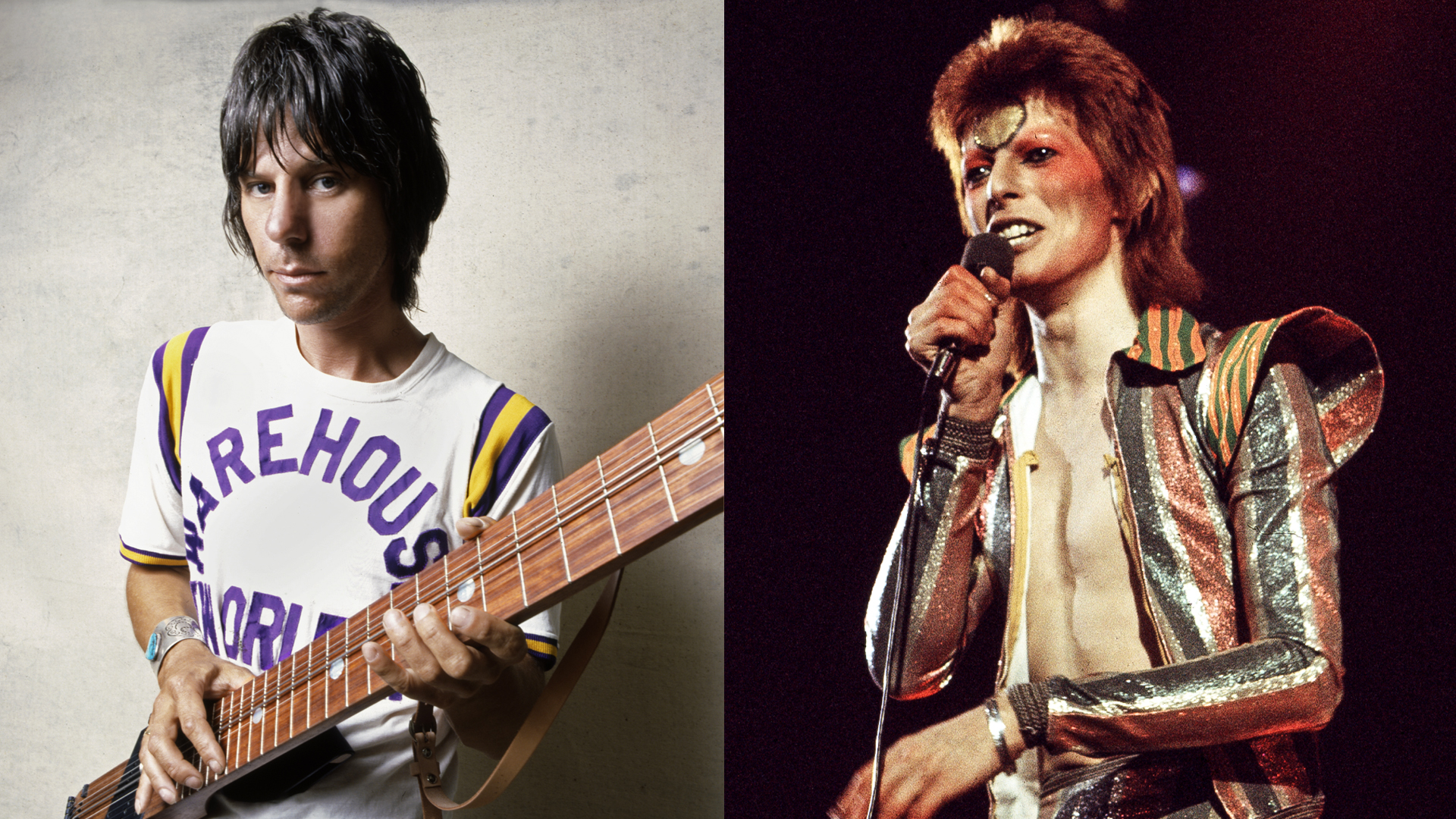“There was silence. Jack said, ‘How much do you know?’” Eric Clapton, Jack Bruce and Ginger Baker wanted to keep Cream a secret. A record project nearly blew their cover
Tasked with putting together an all-star band in 1966, Manfred Mann's singer coincidentally formed a dream team that included all three of Cream's members

When Buddy Guy played London's Marquee Club in 1965, Eric Clapton was in the crowd. He was so impressed by the bluesman's power trio, it prompted him to quit the Bluesbreakers and form Cream, the rock world's first supergroup.
Recruiting Ginger Baker and Jack Bruce — two players with lofty reputations in jazz spheres who also helped kickstart the progressive rock boom of the ‘70s — Clapton set about making his dream a reality. The trio began rehearsing in secret in July 1966.
But as Manfred Mann vocalist Paul Jones reveals, he accidentally stumbled upon their classified project when he was asked to put together a dream team of his own for a new compilation album.
Speaking to Mojo, Jones says it all began when Elektra Records was preparing its 1966 sampler album, What's Shakin', to show off its new roster of rock artists. The label was setting up shop in London and realized it needed more local representation on the disc, and Jones was asked to form a band comprising some U.K. musicians.
“They had the Lovin’ Spoonful, Paul Butterfield, Al Kooper and Tom Rush,” Jones recalls. “[Producer] Joe Boyd said, ‘Look, we can’t do this without one British act. We’ve asked the Yardbirds and so on, and they all say no… could you put together a band?’”
Bruce was the first name that came to Jones' mind. The bass player promptly agreed to the project and asked who else he was eyeing up. Jones said Clapton, noting that the guitarist had just left the Bluesbreakers and might be available.
“Yeah, of course, he would be anybody’s first choice,” Bruce said. “Anybody else?”
All the latest guitar news, interviews, lessons, reviews, deals and more, direct to your inbox!
“It’d be great if we could get Ginger Baker on drums,” Jones suggested.
“There was a silence,” he tells Mojo. “Then, Jack said, ‘How much do you know?’
"I said, ‘About what?’"
Bruce paused. "‘Oh, nothing,’” he said.
Jones had no idea the dream group he'd suggested was a real thing.
“I had just put together Cream," he says, "and they were already rehearsing!”
Despite Clapton, Bruce and Baker having their irons in another fire, the trio signed up to Jones' project, which saw him play harmonica, with Steve Winwood (then in the Spencer Davis Group) assuming vocal duties and Ben Palmer on piano. However, this expanded Cream lineup was denied when Baker, as the official line goes, became unavailable. Winwood called on his bandmate Pete York to fill the vacant drum seat.
That excuse, it later came to be known, was a fib. In fact, Baker said it would be “really stupid” for Cream's three members to feature on the track “when we’re about to burst onto the world.”
Dubbed Eric Clapton and the Powerhouse, the group recorded three songs that made it onto What's Shakin': Robert Johnson's "Crossroads" (soon to be covered by Cream), Memphis Slim's "Steppin' Out," and "I Want to Know," reportedly written by Jones but credited to his wife, Sheila McLeod.
An unknown blues track was also recorded at the session but not used. Clapton told Guitar Player in 1992, “the slow blues was never issued, so they must have it on tape at Elektra somewhere. It was pretty good, too.”

The group's star appeal was somewhat diminished as several of the artists were under contract to other labels. As a result, Jones was credited under the pseudonym Matthew Jacobs, a combination of his two son’s names. Winwood went down as Steve Angelo.
Years later, long after the tornado of technicality that was Cream had wreaked havoc on both sides of the Atlantic, then disintegrated, Bruce said that Clapton, as the token blues player, had his work cut out in the group.

“I think Eric thought he was going to have this little blues trio and he would be sort of like Buddy Guy standing out the front,” he posited. “And then I thought, 'Great, I can be a composer and get some songs out there.' I think Ginger just wanted to conquer the world, like Genghis Khan. We had different ideas.
“Meanwhile, the management was thinking, ‘Let’s milk this for all it’s worth because it ain’t going to last.'”
When the band, as their management predicted, did fall apart, Rory Gallagher was eyed up as a replacement for Clapton, believing there was plenty more bags of cash to be made from the Cream name. He ultimately declined, but Cream’s experimentalism left a huge imprint on a music scene that would never be the same again.
A freelance writer with a penchant for music that gets weird, Phil is a regular contributor to Prog, Guitar World, and Total Guitar magazines and is especially keen on shining a light on unknown artists. Outside of the journalism realm, you can find him writing angular riffs in progressive metal band, Prognosis, in which he slings an 8-string Strandberg Boden Original, churning that low string through a variety of tunings. He's also a published author and is currently penning his debut novel which chucks fantasy, mythology and humanity into a great big melting pot.


